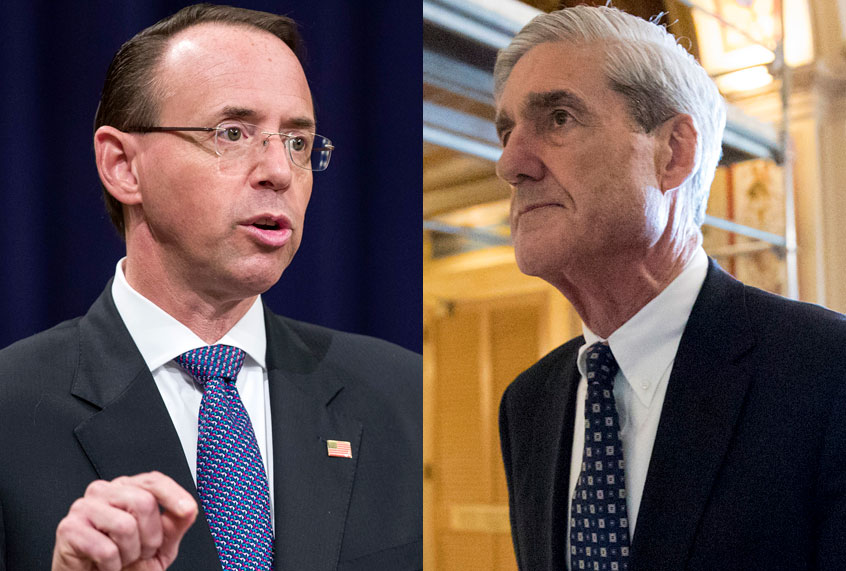With the announcement on Wednesday that Deputy Attorney General Rod Rosenstein is planning on leaving President Donald Trump’s administration, both Republicans and Democrats are expressing concern about what will happen next.
A source qualified to speak about Rosenstein’s decision has confirmed that the deputy attorney general plans on leaving the administration once he is convinced that special counsel Robert Mueller’s investigation is either finished or close enough to being completed that it will be protected, according to CNN. The Rosenstein developments, as originally reported by ABC News, also mention that Rosenstein would wait until his incoming attorney general William Barr has had enough time smoothly transitioning into his new role. Sources close to Rosenstein emphasize that he is not being forced out by anyone in the Trump administration, or Trump himself, and that he always envisioned himself staying in his position for roughly two years.
Yet despite the fact that Rosenstein’s exit was apparently planned in advance, there are concerns about what life will be like in the Trump administration after he is gone.
“I would be very interested in his views on the independence of the Mueller investigation, whether or not he will protect it. He has made some statements in the past that give me some concern,” Sen. Chris Coons, D-Del., told Business Insider.
Sen. Richard Blumenthal, D-Conn., raised a similar point, telling Business Insider that “high on the list [of concerns] is an absolute ironclad assurance and commitment that there will be no interference in the special counsel investigation, including prompt and complete approval of subpoenas, other investigative tools, and any indictments that are returned by the grand jury.”
Meanwhile Coons has joined Sens. Cory Booker, D-N.J., Lindsey Graham, R-S.C. and Thom Tillis, R-N.C., in reintroducing the Special Counsel Independence and Integrity Act, which would protect not only Mueller but other special counsels from outside meddling, according to NJ.com.
“One of the core principles of our justice system is that nobody is above the law. Our bipartisan bill defends that fundamental principle by protecting Special Counsel Robert Mueller, and future special counsels, from political interference. It’s a common sense, bipartisan bill that provides the appropriate and necessary checks and balances on presidential power in order to avoid a constitutional crisis,” Booker said in defense of the measure.
At the same time, Graham has said that he is concerned that Democratic criticisms of William Barr could become reminiscent of the confirmation hearings for Supreme Court Justice Brett Kavanaugh. Graham was fiercely critical of those hearings.
“I expect him to be challenged and appropriately challenge him about his memo and other things. I just hope it’s done respectfully. I’m trying to set a tone where we can have our differences and move forward,” Graham told reporters. His views were echoed by Sen. John Cornyn, R-Texas, who told reporters that “I guess the question we all have is this going to be Kavanaugh 2.0 where it’s really not about searching for the truth — it’s more about character assassination. I’m an optimist by nature, so I can hope for the best but we’ll have to wait and see.”


